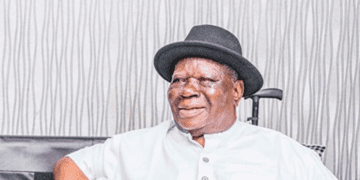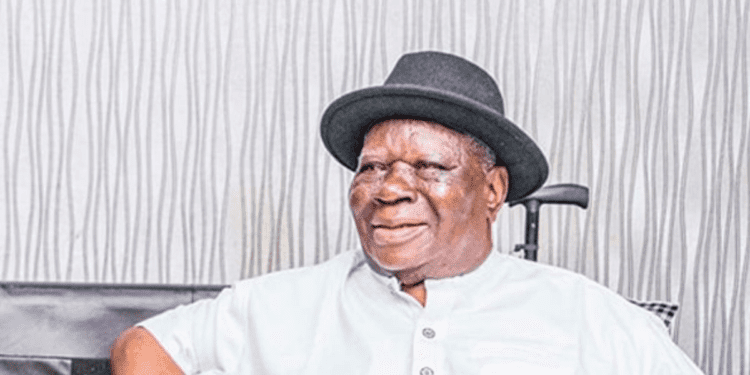Nigeria has lost one of its most influential voices, as an elder statesman and Ijaw leader, Chief Edwin Kiagbodo Clark, passed away in his sleep on Monday at the age of 97.


A towering figure in the country’s political and civil rights landscape, Clark’s demise was confirmed by his family in a statement released on Tuesday, with funeral arrangements set to be announced later.
The statement, issued by Prof. C.C. Clark on behalf of the Clark-Fuludu Bekederemo family of Kiagbodo Town in Delta State, read:
“The Clark family wishes to announce the passing of Chief (Dr.) Sen. Edwin Kiagbodo Clark, OFR, CON, on Monday, February 17, 2025. The family appreciates your prayers at this time. Other details will be announced later.”
Clark, who would have turned 98 in May, leaves behind an indelible legacy as a fearless advocate for justice, a champion of the Niger Delta, and a political pillar whose impact spanned several decades.
A Legacy of Advocacy and Leadership
Tributes have poured in from across the country, with the Pan Niger Delta Forum (PANDEF) describing his passing as the fall of a “mighty Iroko tree.”
In a statement by its chairman, Ambassador Godknows Igali, PANDEF highlighted Clark’s unmatched dedication to public service, his legal and political career, and his role as a relentless advocate for justice and equity.
“Pa Clark was a distinguished lawyer, activist, and politician. He founded PANDEF and co-led the South and Middle Belt Leaders Forum, tirelessly pushing for justice, equality, and human rights. His contributions extended beyond politics into law, education, and community development, where he played a role in founding several universities,” PANDEF stated.
Senate President Godswill Akpabio, in a heartfelt tribute titled “The Passing of a Pillar, The Loss of a Nation’s Conscience,” described Clark as a guiding force in Nigerian politics.
“With his passing, we do not just mourn the loss of a man, but the fading of a voice that spoke with wisdom, courage, and an unwavering love for Nigeria. He was not just a leader—he was a moral compass,” Akpabio said.
A Life of Service and Political Influence
Clark’s political career began in 1953 when he was elected as a councilor for Bomadi. He later became a key figure in the National Council of Nigeria and the Cameroons (NCNC) and played a prominent role in the 1966 constitutional conference, advocating for Nigerian unity amid debates over regional autonomy.
His influence continued in the First Republic, where he served as Federal Commissioner for Information, and in the Second Republic when he was elected senator. He was also instrumental in the establishment of what later became the University of Benin.
Beyond his official roles, Clark was a relentless advocate for resource control and the rights of the Niger Delta people. He led delegations to government officials, spoke out against injustice, and remained an outspoken critic of policies he believed marginalized his region.
A Final Chapter in Nigerian History
Clark’s passing comes shortly after the death of his longtime ally, Pa Ayo Adebanjo, marking the end of an era of elder statesmen who played pivotal roles in shaping modern Nigeria.
His residence in Asokoro, Abuja, became a site of mourning on Tuesday morning, with early visitors paying their respects and reflecting on his immense contributions.
One mourner captured the sentiment, saying:
“His memory will forever stand as a beacon of hope and courage for generations yet unborn.”
As Nigeria prepares to lay this titan to rest, his legacy remains a testament to a lifetime of unwavering service, fearless advocacy, and an undying commitment to justice and national unity.







